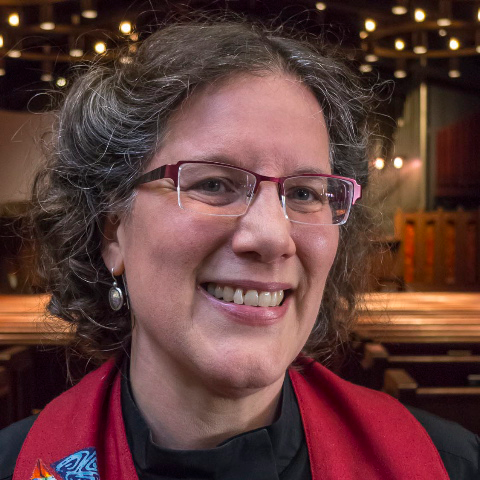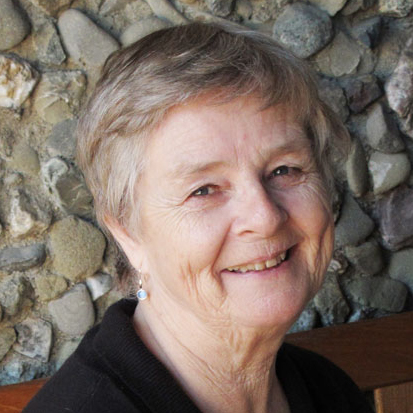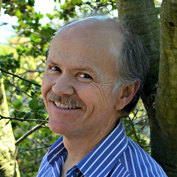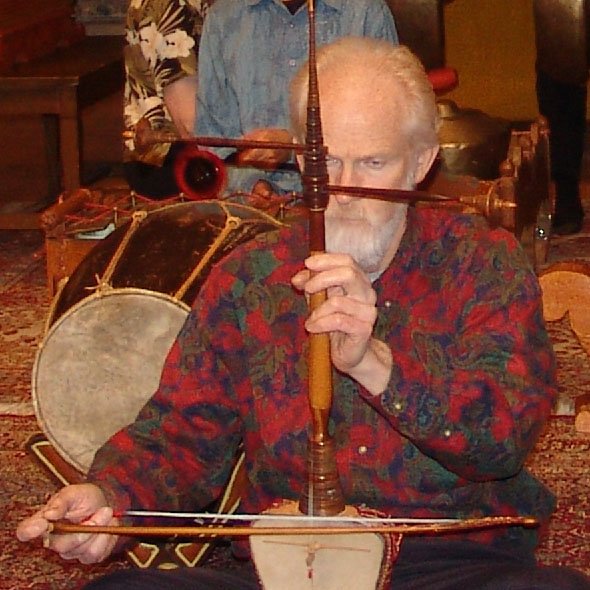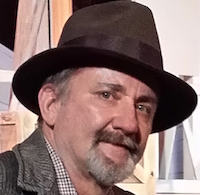Step 1: Getting Started
The minister of a small-town church was walking down the street one hot summer day. At the end of the block he found two little boys that he recognized from his Sunday School. They were sitting on the curb, and cuddled between them was the skinniest, scrawniest, mangiest looking dog the minister had ever seen. They were sitting close to the dog, and each boy had an arm around it.
“Well, hello boys. What are you doing?”
One of the boys looked up and said, “We’re telling lies!”
“Yeah,” the other said. “Whoever tells the biggest lie keeps to keep this neat old dog we found.”
The minister was shocked. “Boys, I’m so sorry to hear that. To think that two boys from my Sunday School would be telling lies. Why, when I was your age I would never have dreamed of such a thing.”
The boys were crushed. They looked down at the ground. They scuffed their toes in the dust. A tear fell down. Finally one of the boys looked at the other and said, “Looks like Reverend wins the dog.”
We’re not here to tell lies today. Truth is what we’re about. We each have a job to do, you and I. My job is to share some things with you that I deeply believe to be true. Your job is to see whether you agree with me.
Step 2: Truths to get us started
Here are two truths to get us started.
The first is that this is a historic day that will be looked back upon in years to come. Hours and hours and hours have been invested in determining repairs and improvements that are required for this beautiful church home. Today is the day you begin to make that happen.
The second is that you have done yourselves proud in gathering the talented, committed team that is leading this campaign. They have worked endlessly, and with great talent and skill, to make this a great time in the life of your church. They deserve your respect and appreciation.
Step 3: Win Arn/Wenatchee Youth Circus
Back in the late ‘50s and early ‘60s a great church growth movement got underway in this country. Dr. Win Arn is widely considered to be one of the founders of that movement. Up in Wenatchee, Washington there is a wildly popular and world famous youth circus: a circus where teens do all the traditional circus acts. Dr. Arn was making a movie that featured that youth circus.
During a break in shooting he was standing off to the side watching the aerialist rehearse their act. Some teenagers came up to him and began say, “You could do that.” You know how kids are. Soon he was surrounded by teens who were urging him on, daring him to try the high trapeze.
Dr. Arn looked high up at the trapeze bars. He looked at the little platform that he’d need to stand on. Mostly, though, he looked at the huge net that would catch him if he fell. Finally he agreed to do it.
Soon he was climbing up that little ladder to a platform that turned out to be impossibly high. When he finally stood on the platform he looked down and was amazed at how small the net had become.
But he was committed. He stood in position with shaking knees, holding on to the trapeze. Far across the arena someone yelled, “Go,” and launched the bar that he was to catch. Dr. Arn launched himself off, swinging in a wide arc to meet the other trapeze.
He said later that at the very instant that he needed to move from one bar to the other he learned three important lessons: You can’t reach for the next bar while holding onto the one you already have; it’s hard to let go of your security; and you don’t have all day to make up your mind.
I’m going to change those lessons just a bit for our use today, and say: you can’t reach for your future while holding onto all of your present; letting go of your security can be a wonderful thing; and now, during these weeks of the capital campaign, is the time to make up your mind.
Step 4: Letting Go of the Present
What is it in your present that you have to release so that you can grasp the future you’ve envisioned for yourselves?
This is the third UU church that I’ve worked with. I notice that part of the common culture that seems to be shared among UUs is a passion to encourage members to go out and invest themselves in various social causes in the community, including putting generous charitable giving in those other directions.
That’s a wonderful sentiment, and I commend it at the very same time I question some aspects of it. I ask myself, “Doesn’t this help explain why they need to raise over a million dollars to meet the basic needs of their own ministries?”
I also ask myself, “What community cause can possibly be more important than the one you have right here?”
Twenty years ago my son came out to me that he’s gay. It wasn’t much of a surprise, but I was heartbroken—and not because he was gay. At that moment in his life he was desperately confused about who he was and what it all meant. He needed a caring spiritual community that would receive him as he was and nurture him into finding out who he could become. My heartbreak was that I, who had served churches all of my life, didn’t know a single one to which I could safely refer him. At that time I didn’t know anything about UUs.
This church is life-changing, and for some it may even by lifesaving. You offer something that churches of other traditions don’t and can’t offer. Anyone can walk in here and be accepted, appreciated, and cared-for without needing to become anything other than what they already are. Not only that, but your worship is vibrant. Your music is absolutely exceptional. Your ministerial leaders are amazing. Your sense of community is strong.
So I come back again to ask, “What cause is more worthy than the one you have right here?” Remembering that you can’t reach for your future while holding onto everything that you now have, I have a request: Please consider the possibility of making your own church the primary cause to which you contribute your charitable dollars. Other causes have other people who will help them if you don’t. Your church has no one to help except your own members.
Step 4: Letting go of your security can be a wonderful thing
As Mahatma Gandhi stepped aboard a train one day, one of his shoes slipped off and landed on the track. He was unable to retrieve it as the train was moving. To the amazement of his companions, Gandhi calmly took off his other shoe and threw it back along the track to land close to the first.
Asked by a fellow passenger why he did so, Gandhi smiled. “The poor man who finds the shoes lying on the track,” he replied, “will now have a pair he can use.”
Ghandi could only react that way in an instant because he had spent years of his life being faithful to the Hindu teachings about generosity.
Have you ever considered that every major religion in the world recognizes the many spiritual issues connected with our need for money and possessions? Every faith teaches that growing spiritually requires being less dependent on what we have and becoming more open to the practice of generosity.
The virtue of generosity has been at the foundation of Buddhism since the time of the Buddha himself.
The Koran says, “Any charity you give is for your own good.”
Judaism teaches that any generous act benefits the giver.
Jesus taught that God doesn’t judge us by what we believe, but by whether we fed the hungry, visited the sick, or clothed the naked.
We’re launching this capital campaign today not so the church can do and be something different; we’re launching it so that the church can be what it always has been and do what it has always done: help people advance along their chose spiritual paths.
Some have already shared out of great generosity. Others will also, and everyone is invited to participate. We know that not everyone can give a large gift, but everyone can practice a magnificent generosity. In doing so the spiritual wisdom of the ages gives assurance that you’ll find that letting go of some of your security is a wonderful thing.
Step 5: Now is the time to make up your mind
So—now is the time to make up your mind. Not today necessarily. The campaign runs until the Thanksgiving season, so you have plenty of time meditate on it, pray about it, whatever your spiritual practice leads you to do. But today is the time to begin asking, “How do I see myself ? How generous do I want to become?”
There are always certain questions that get asked during a campaign.
- Are you asking me for a large gift?
No. You are being asked for a generous gift. No one can give what they don’t have, but everyone can be generous. The same great generosity leads to smaller gifts from those who have less and to larger gifts from those who have more.
Some will decide that this is their time to make the largest gift that they have ever made. It’s not my place to tell anyone what they should do in this regard, but I simply ask each to consider whether this is your time to give more boldly than ever before.
- Another question: How can I give more when my income barely stretches as it is?
All we’re doing in this campaign is asking you to consider in a spirit of prayer and meditation what you would like to do. You have to decide what you can do. Some will find a way to stretch their paychecks a little more. Some will choose to share part of what they already have: something from savings, a gift of stock or mutual funds, perhaps some real estate. Probably most will do a combination of sharing from resources they already have and from their current income.
Arrival
This week I read again your inspirational church history. Every church that has endured for generations has passed through good times and bad times, but those who came before you in this place set a high standard.
There was the panic of 1893, financial disaster when the church was only two years old. The World War I era was especially difficult, and not just financially. That was the first time that the mantle of leadership passed from one generation to the next. Of course that happened since, and will happen again in the future; but not every church is able to navigate a change of leadership while also working through hard financial struggle.
The Great Depression. World War Two. Just keeping the door open was a challenge that many churches weren’t able to meet. Yours did.
Then a visionary generation practiced extraordinary generosity to come to this site and build these buildings and maintain this ministry that are your inheritance today.
That invites the question: What will your legacy be?
One of my colleagues in ministry asked his congregation a related question at a similar time. He said, “We want to serve your grandchildren, and their children; or, if not your own grandchildren, someone else’s. What are you willing to do to help us serve the grandchildren?”
This is what we are asking today: over the next few weeks consider how generous you wish to be to maintain a ministry like this for generations to come. Some of your fellow members have already told us they will be generous indeed. Some who are here today will decide that this is the time to make the largest gift they will ever make in their lifetimes.
Think about it. Meditate on it. If you pray, pray about it. Then, when you’ve found the gift that will give you joy, join the generous team that is making your future possible.







